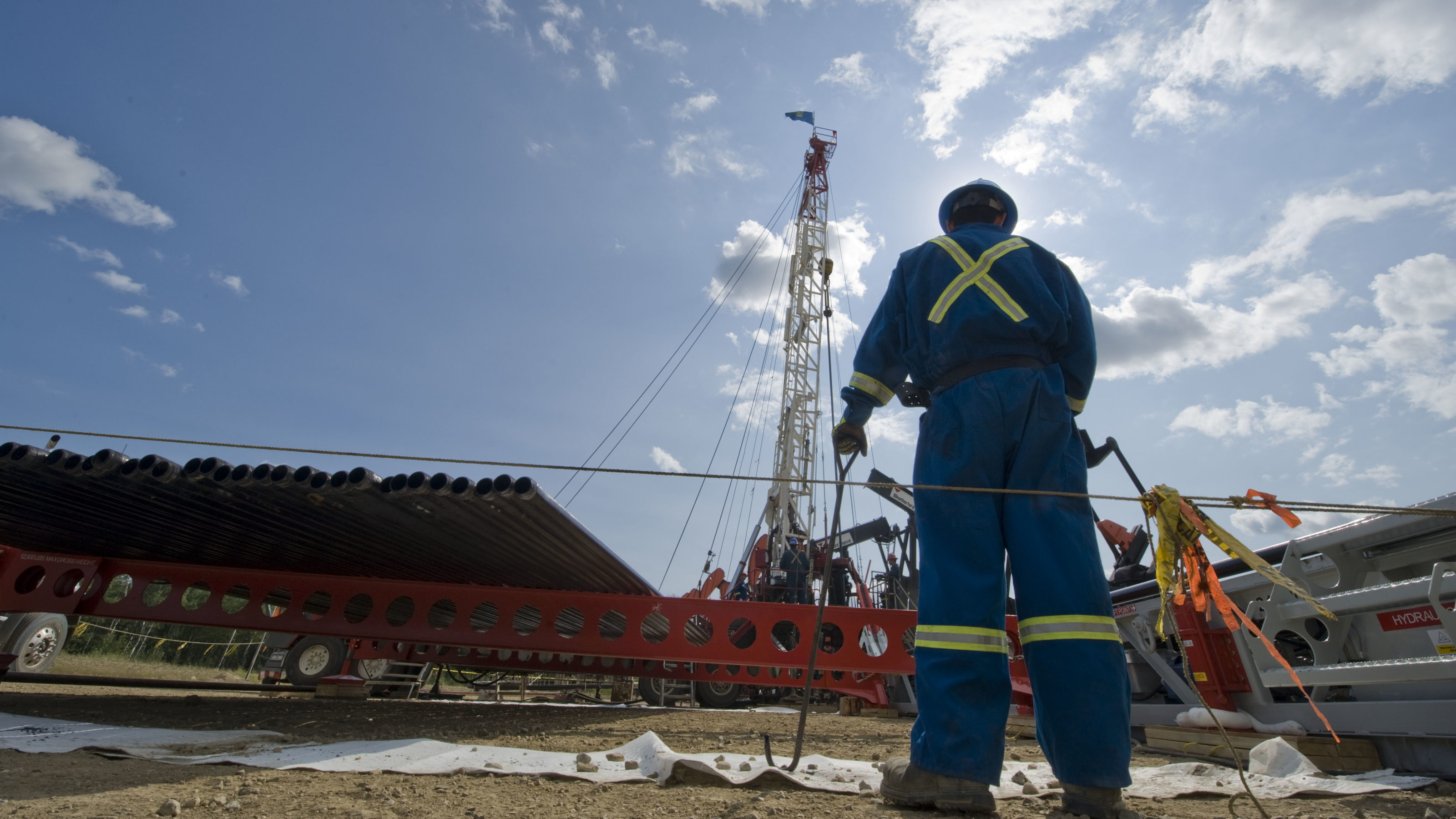Alberta’s massive oil sands resource is surely the world’s best, or worst, example of the opposing forces of energy symbolism versus energy supply.
The planet’s most vilified petroleum went from zero to hero following Russia’s invasion of Ukraine.
At NATO, International Energy Agency and G7 meetings in Europe about ending oil purchases from Russia in March, Canada promised to increase oil production by 200,000 barrels per day. Most would come from the oil sands, the crude the world loves to hate.
Until a few weeks ago.
But with security of supply again a major geopolitical issue, nobody cares anymore where oil comes from so long as it’s not Russia.
After cancelling Keystone XL as his first act after inauguration, U.S. President Joe Biden is now seeking more oil from recognized bad actors Iran, Venezuela and Saudi Arabia.
How did the oil sands digress from engineering miracle to climate menace?
Early this century private oil companies sought accessible and large undeveloped growth opportunities. The massive oil sands appeared ideal. Suncor, Syncrude and Esso Cold Lake had demonstrated that bitumen could be extracted safely and profitably. Huge reserves remained untapped.
A major oil sands expansion began. From 2002 to 2022 output rose 400 per cent from 744,000 to 3.2 million barrels per day.
At the same time, climate change emerged as a major public issue. A catalyst was Al Gore’s 2006 movie An Inconvenient Truth which won a Nobel Prize and an Oscar. This was followed in 2008 by the “Tar Sands Campaign” launched by U.S. environmental activists.
As oil sands development grew, so did a multi-year, multi-faceted attack against a single major petroleum source that was focused entirely on Alberta.
Until Russia in 2022.
In 2008 several hundred ducks died in a tailings pond. In the House of Commons the opposition demanded action, the Stephen Harper government was on the defensive.
A year later a Globe and Mail columnist wrote, “For environmental groups, the dead ducks were a godsend. They cemented in the public mind the idea that oil sands meant dirty oil, which means the rape and pillage of the environment.”
The disastrous 2010 rupture of Enbridge Line 6B which spilled nearly 25,000 barrels of “dilbit” into Michigan’s Kalamazoo River was a negative turning point. Shortly thereafter allegations emerged that bitumen was so abrasive that it caused pipelines to fail making more spills inevitable. Opponents also claimed that bitumen wouldn’t float, making oil spills on water particularly damaging.
Although these claims were proven false, they helped galvanize opposition to the Enbridge Line 9 reversal, Keystone XL, Northern Gateway, Energy East, and Trans Mountain oil sands pipelines.
By 2011, Alberta bitumen was widely regarded as so terrible that the EU considered banning its importation. Europe much preferred Russia. That same year environmentalists Bill McKibben and David Suzuki publicly encouraged civil disobedience to block Keystone XL.
Then came the celebrities who flew to Fort McMurray to pose for pictures and trash the place. Neil Young. Leonardo DiCaprio. Jane Fonda. James Cameron. They provided global social media with provocative images and incendiary quotes like Young comparing oil sands mining to Hiroshima after the nuclear blast.
Meanwhile, in the ten years from 2002 to 2012 China increased coal consumption by 250 per cent and became the world’s largest carbon emitter.
But this crusade was about emotions and politics, not facts.
The bombardment was so effective that in 2015 Premier Rachel Notley referenced how Alberta had become the “embarrassing cousin” that nobody wants to talk about because of its alleged appalling environmental record.
That year the Justin Trudeau Liberals campaigned against the Northern Gateway pipeline intended to move bitumen to Asia. That was the first of three Liberal election wins on a pro-climate, anti-oil emissions platform. In 2019 the Liberals passed Bill C48, the oil sands export tanker ban on B.C.’s north coast.
Three years later the tone has changed. TV images of burning forests blamed on climate change have been replaced by burning buildings in Ukraine.
Oil-soaked ducks from 2008 or strip-mining operations are no longer news. Instead we’re learning about 4 million Ukrainians fleeing for their lives.
Symbolism versus supply. Incredible.
The oil sands boycott has been replaced by the Russian blood oil boycott. Former oil sands haters are either silent or relieved that the 3.2 million barrels per day from Alberta is steady and secure.
Plus the extra oil that the Liberals proudly pledged in Europe.
Oil sands could deliver much more if its social license had not been revoked by B.C., Quebec, Ottawa, U.S. Democrats, global environmentalists, capital markets and federal legislation.
Most frustrating is that nobody ever quit buying the product. Alberta remained adamant that it was just oil. Safe. Responsible. Conflict-free. Lots of oil, and emissions would continue to decline with innovation and technology.
Tragically, blood had to be spilled to change the channel.
But the climate change frenzy at that time demanded a focal point and victory, and Alberta’s oil sands was the chosen sacrifice.
On March 29 Ottawa announced the world’s most aggressive emission reductions from an existing oil source in history, Alberta’s oil sands. Details to follow.
As the world seeks more non-Russian oil for humanitarian reasons – and whatever was agreed upon about alternative supplies in Europe – the Liberal government has ensured there will be no material increase in oil sands production without regulatory clarity.
The beatings will continue until morale improves.
The world owes Alberta an apology.
David Yager is an oilfield service executive, oil and gas writer, and energy policy analyst. He is author of From Miracle to Menace – Alberta, A Carbon Story.
The unaltered reproduction of this content is free of charge with attribution to Canadian Energy Centre Ltd.
